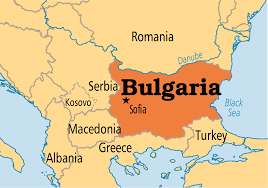Search posts by keywords:
Filter posts by author:
Related Reports
Related NEAT Reports
Other blog posts
posted on Jan 31, 2017 by Ivan Kotzev

Last month, NelsonHall visited TeleTech’s delivery center in Sofia, Bulgaria, to discuss the company’s main European operations and the advantages and challenges of Bulgaria as a customer management services (CMS) delivery destination.
From Sofica to TeleTech
TeleTech acquired a local provider, Sofica Group, in 2014 and rebranded it in 2016. Sofica was one of the first Bulgarian outsourcing providers, created in 2004 and offering customer care, technical support L1, helpdesk, and CMS back office in 26 languages, in addition to HRO, hosting, and Contact Center as a Service. The majority of the work is inbound, operating 24/7, but it also offers outbound sales services. It has ~1,100 people in three centers in Sofia and Plovdiv, and in Skopje, the capital of neighboring Macedonia. The main clients are European and U.S. telecoms, technology, financial services, and travel and transportation brands. TeleTech Eastern Europe also has ~15% domestic business servicing one of the biggest national mobile telecoms.
Advantages of the Bulgarian market
Bulgaria has experienced steady growth in its CMS industry, with major players present in the country since 2003-2004. The country has close to 45k people working in more than 360 outsourcing providers, and this is expected to reach 64k people by 2020 out of an active labor force of 2.4m. NelsonHall estimates that ~23k employees work in front office outsourcing services. In addition to TeleTech, CMS providers present in the country include:
- HPE/CSC
- Concentrix
- Convergys
- C3/CustomerContactChannels
- Sitel
- Sutherland
- Telus International
- Tek Experts.
In addition, there are several local providers, including 60K, Call Group, and Euro Connect.
The benefits of the country as a front office delivery location are in the deep multilingual skills of the agents, typically fluent in a major European language, but often speaking two or even three languages in addition to their native Bulgarian. For example, in TeleTech’s Sofica center, over 80% of the agents speak more than one language in addition to English and their native language.
Due to a language-focused national education system and a significant number of employees with direct study or work experience in European countries and the U.S., front-office providers are often able to handle multiple markets with the same resources and have a close cultural affinity. Other advantages of the country include:
- Educated workforce able to provide front and back office services in technical and financial sectors
- The lowest corporate tax in EU at flat 10%
- Low office rental space. For Sofia, the average rent for A class business property is €12-€14 per m2
- Good internet connectivity. Bulgaria often ranks among the top 20 countries globally for average internet speed
- Physical and time zone proximity to Western Europe with direct flights to most European capitals
- Stable currency pegged to the Euro.
Challenges of the Bulgarian market
The biggest limitation for the Bulgarian CMS industry is the market saturation. While the minimum wage in the country is one of lowest in Europe at €210 per month, the labor cost, particularly in Sofia, has steadily increased since 2010. For the relatively small agent pool, vendors compete with a sizable ITO sector and in-house support centers, as well as middle and back office outsourcing operations in HRO and FAO. Brands with front office operations in the country include AIG, Coca-Cola, C3i, EXL, Experian, IBM, Ingram Micro, Skrill, and William Hill.
Since 2008, this trend has caused vendors to open centers outside the capital Sofia in tier 2 cities such as Plovdiv, Varna, and Burgas. TeleTech was among the first to open its center in Plovdiv and uses it in support of domestic telecoms clients. Still, these locations cannot offer scale.
Other measures to address the labor shortages have been working with universities and offering free training for prospective agents. For example, in Q3 2016, TeleTech launched TeleTech Academy, a free training program for prospective agents for soft, technical, and language skills, particularly in German and French.
Also, TeleTech and other vendors have successfully expanded their recruitment network outside the country, targeting young people from Spain, Portugal, Italy, France, Netherlands, and Germany who are willing to relocate for the attractive low-cost lifestyle in Sofia.
Objective is to move up the CMS value chain
TeleTech is aiming to evolve its Eastern European operations to a more comprehensive BPO center offering the consulting, analytics, and technology capabilities of the wider company. For Logitech, TeleTech centralized customer care in Sofia, implemented a satisfaction monitoring process linking NPS across the various customer care touchpoints at the agent level, and developed a detractor reduction program. Within two years of the launch, Logitech experienced 70% improvement in NPS, while AHT reduced by 22%.
The vendor has a strong outbound revenue generation experience with several projects in Europe and U.S. for telecoms clients. In the summer of 2016, it started a service-to-sales program for a domestic telecoms firm with ~80 agents. For 2017, the provider is planning to build on this experience by launching a wider customer journey mapping and VOC assessment project for the client utilizing the resources of TeleTech’s Customer Strategy Service unit.
Continuous growth for the Bulgarian outsourcing industry
TeleTech’s objectives to expand into consulting and technology services from its Bulgarian operations is aligned with the development of the country as an outsourcing destination. As a growth strategy for a market relatively limited in scale, Bulgarian CMS vendors are adding more advanced technical support services and more digital channels to the already existing language base.
According to the Bulgarian Outsourcing Association, the national outsourcing industry is expected to reach €2.7bn (~6.0% of the country's GDP) by 2020.
